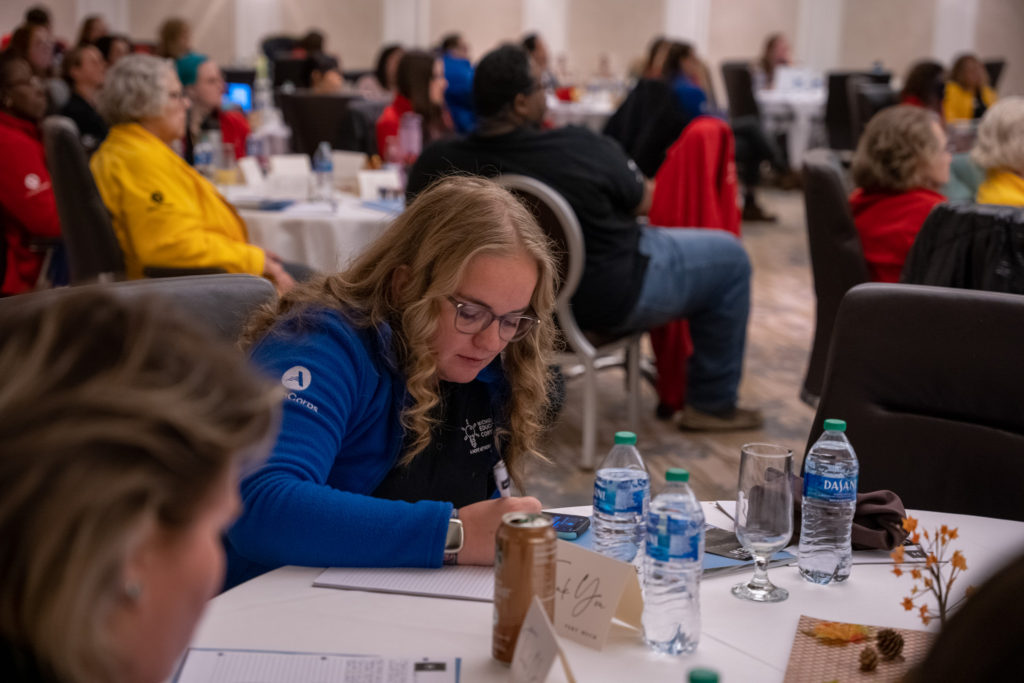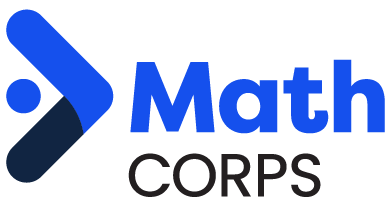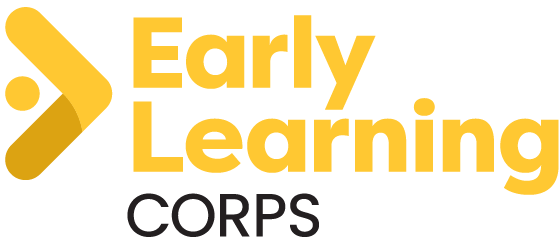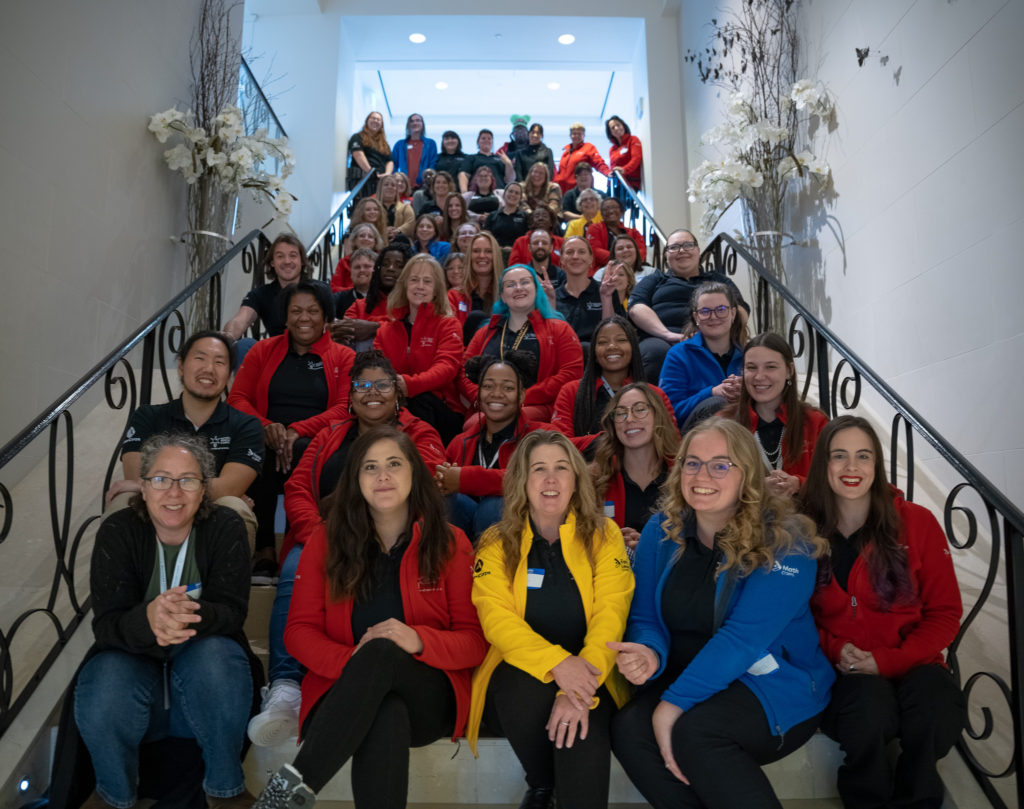
A Glimpse into MEC’s Ongoing Member Coaching and Training
MEC is committed to building the next generation of educators, advocates, and leaders. We do this by providing members with ongoing training and coaching support throughout their service. We put a lot of effort into ensuring all our AmeriCorps members have a transformative experience from the beginning to the end of their service that is targeted to help them achieve their personal goals and reach their full potential to better serve their communities. CorpsConnect, a periodic practice, is one such component built into our member experience.
What is CorpsConnect?
For Our Members: Practice, Reflection, Growth.
While most CorpsConnect meetings have MEC members attend virtually from their service sites, MEC hosts two in-person events in the fall and spring. We bring our members together from all over the state to attend this conference style event. Over these two days, members have the opportunity to meet their peers, attend workshops, and learn from experts in a variety of fields like workforce development, diversity and equity, social-emotional learning, advancing academic intervention knowledge, etc.
During our November 2022 CorpsConnect, we had some amazing guests talk about intervention, identity in the classroom, advocacy and childhood psychology.
Read more about member education opportunities
Meet our November CorpsConnect Speakers and get a Glimpse into Training
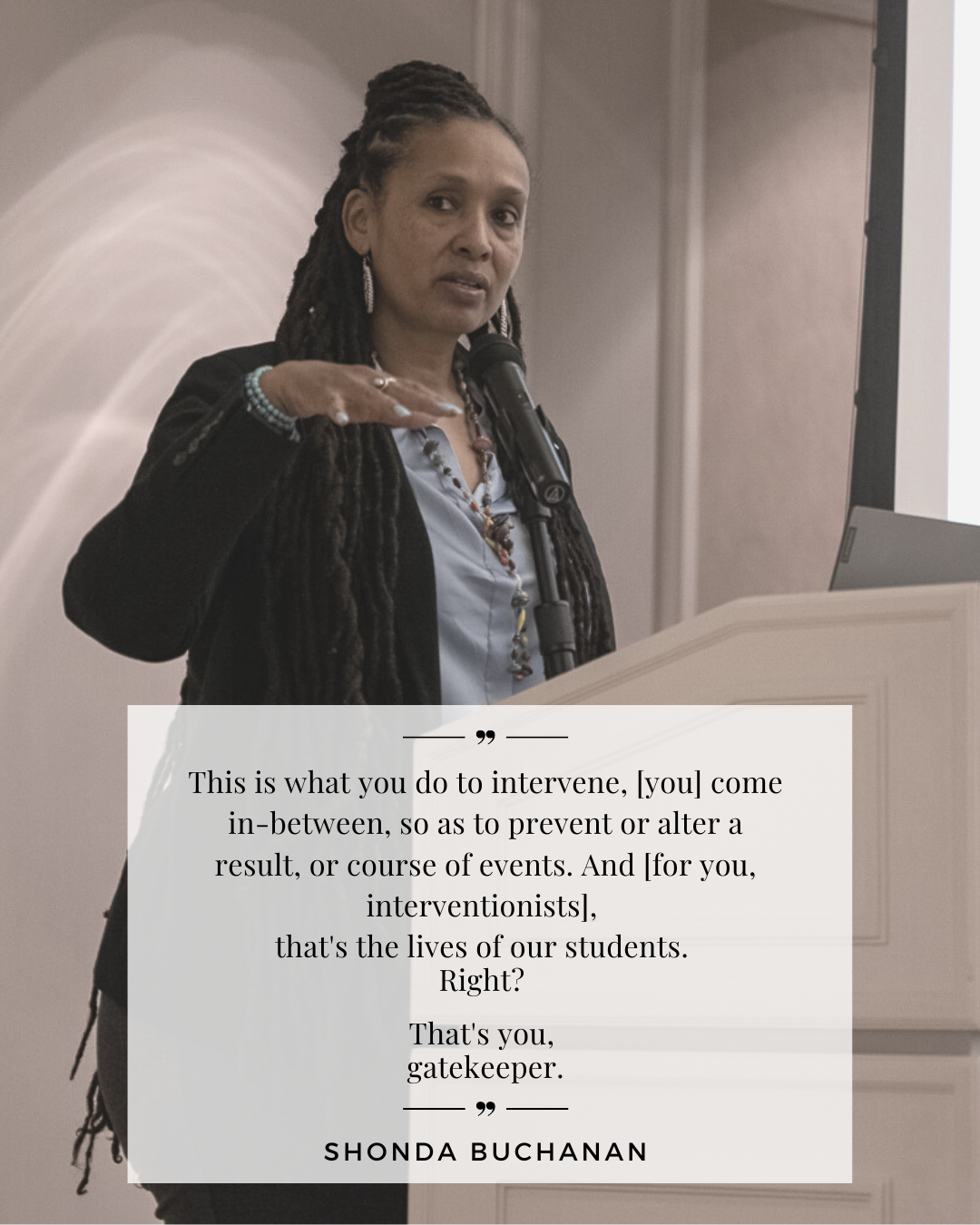

“Black Indian, searing and raw, is Amy Tan’s The Joy Luck Club and Alice Walker’s The Color Purple meets Leslie Marmon Silko’s Ceremony—only, this isn’t fiction. Beautifully rendered and rippling with family dysfunction, secrets, deaths, alcoholism, and old resentments, Shonda Buchanan’s memoir is an inspiring story that explores her family’s legacy of being African Americans with American Indian roots and how they dealt with not just society’s ostracization but the consequences of this dual inheritance.” (Source: https://shondabuchanan.com/?fbclid=IwAR1_M_7rfcdD8HXgy_folivW4RDuTjPoYrJcfLnpkJ0jKmIGOg9C6CsJbVA)
Shonda Buchanan
Shonda Buchanan is an award-winning author, poet and educator. Buchanan shared her personal experiences about growing up and attending school in Kalamazoo, and how her identity impacted how she was treated in the classroom. She described how members serve a special function as not only being interventionists, but as “interveners.” Buchanan believes the action of intervening with the students we serve is critical in order for our kids to succeed, but, too often, they go without this support. This may be especially true for students who are most vulnerable to struggle in school, e.g., those whose first language is not English, come from low-income homes, are black or brown, etc.
“What does it mean to be an interventionist? And I’m curious, can I ask the audience? What does it mean to be an MEC soldier?” Buchanan asked.
Answers from our members varied.
“It means that we believe in the students until they believe in themselves,” one said.
“To be there for our student’s not only to help them with reading, but to help them feel safe, comfortable and heard when they don’t get that anywhere else,” another added.
One member recounted her first year of service and how one student would always want to sit in the interventionist’s room. This student eventually told the interventionist that it was the only place they felt like they could go and feel comfortable.
“So, you were a lifeline?” Buchanan asked. “I see people nodding their heads. How many of you feel like sometimes you’re a lifeline for the student? A lifeline to get them over an emotional hump or get them over an educational issue?”
More than half the room nodded in agreement.
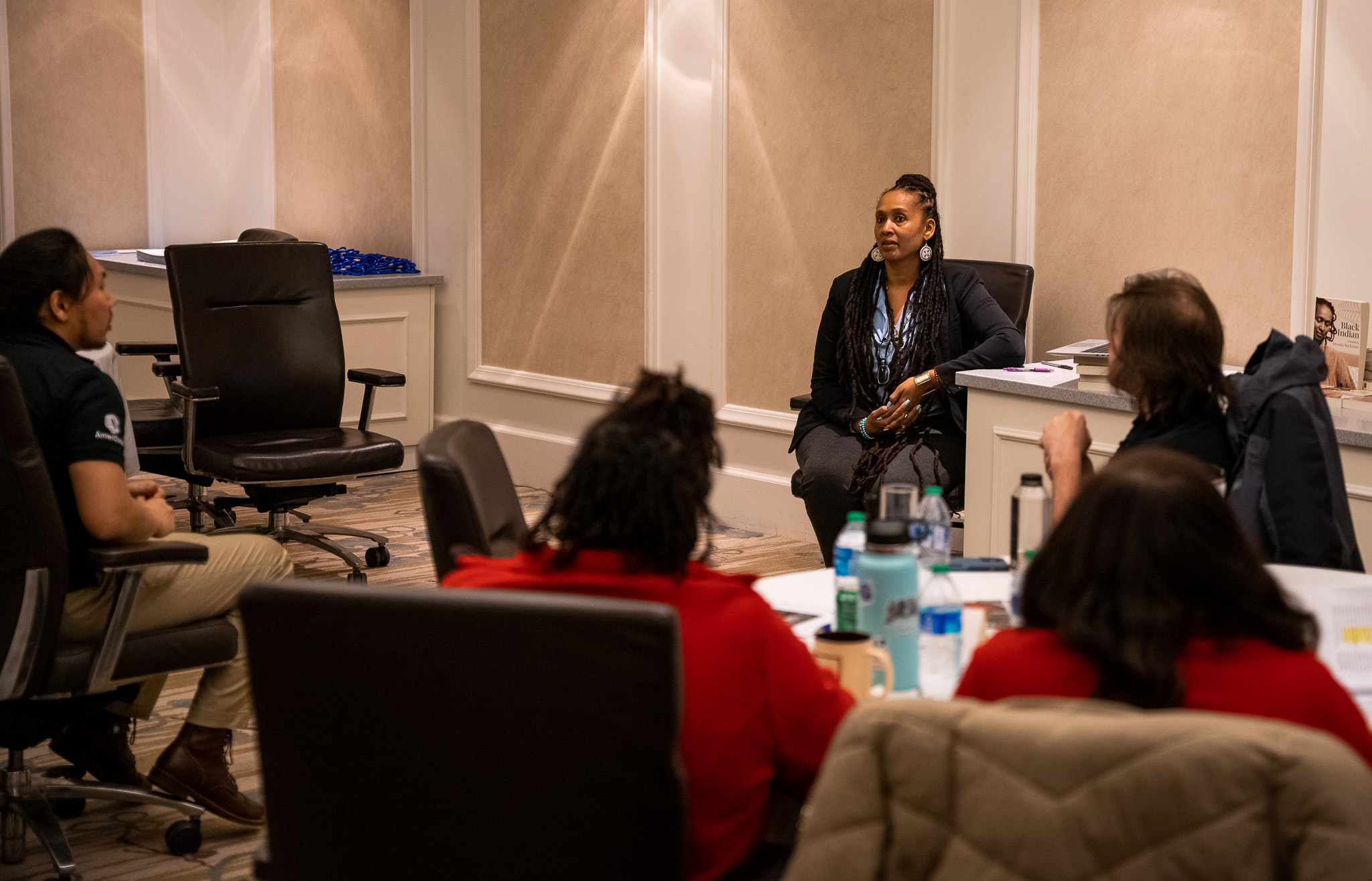
“This is what you do, to intervene, to come between, so as to prevent or alter a result, or course of events. And that’s the lives of our students. Right? That’s you, gatekeeper. And if you don’t think of yourself as a gatekeeper, you should… But we do this. We intervene to make a difference in someone’s life. And in Michigan, the need is so much more great than other states. I was a little astounded when I was looking up Michigan reading and math rates,” Buchanan said.
Read The Education Trust-Midwest’s report Still Stalled: State of Michigan Education Report 2022.
Also, during Buchanan’s session, she expressed the need for students to have teachers that look like them and come from similar backgrounds and experiences. For example, she noted that students of color rarely see a teacher that looks like them at their school. In fact, only 6% of Michigan teachers are Black or African American compared to the 18% of Black or African-American Michigan K-12 students enrolled in 2022. She encouraged young Black or African American Michiganders to consider choosing education as a career.
Overall, Buchanan gave our members a lot to reflect on including these questions: Who was an intervener for you while you were growing up in your community or at school? Who are you an intervener for in your life? For our MEC members, one answer is simple. Every single student they serve, every single day.
You can read more about Shonda Buchanan, her writing and most recent novel, Black Indian, on her website.
 Dinah Lee Schaller
Dinah Lee Schaller
Dinah Lee Schaller, a Licensed Social Worker, who partners with schools, childcare centers and educational institutions also spoke with our members about the Michigan ACEs Initiative, a statewide effort to raise awareness about Adverse Childhood Experiences (ACEs).
Led by the Michigan Department of Health and Human Services (MDHHS), collaborators include other state agencies, public health authorities, healthcare providers, educators, child-welfare agencies and social service providers.
Schaller informed our members that as the number of ACEs increases for each person, so too does the risk for negative health outcomes like alcoholism, drug use, suicide attempts, cancer, etc.
The overall goal of the ACEs Initiative is to reduce the incidents of ACEs by increasing awareness about long-term consequences of experiencing these types of events in childhood. By building awareness on how to recognize ACEs, we can help children build resilience to ACEs through community-based interventions.
“63% of Michigan high school students have reported one or more adverse childhood experiences. That is self-reported data from the 2019 Michigan Youth Risk Behavior Survey… Every year, high school students are asked to take this survey. We have years of data that we can pull from and see. If you go on to the dashboard, there are nine different areas that you can look at. Home and family environment, access to care, school environment, neighborhood and community abuse, neglect, systems and policy factors, chronic diseases, health risk behavior and mental health.”
Schaller further said that data show that the 40% of Michigan children in poverty are also more likely to have higher ACEs scores.
The Big Picture
Every monthly CorpsConnect experience directly contributes to our members’ professional and personal development. For example, time used during our continued coaching and training events directly contributes to those earning the MiYDA credential. Also, each speaker we invite helps assist and encourage our members further along their careers paths to be future educators, nurses, doctors – any direction they choose to go after completing service with MEC.
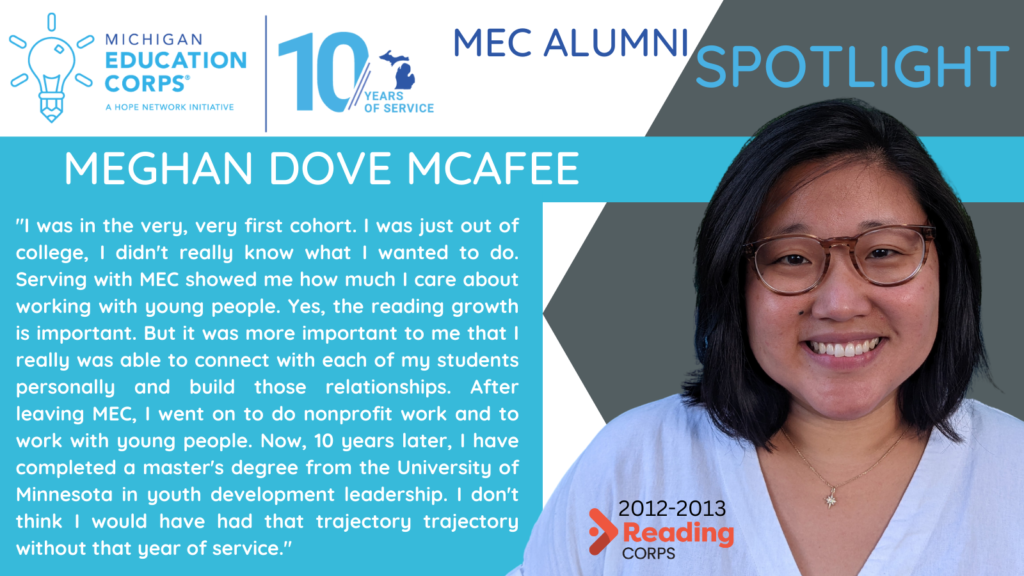
For the immediate time, CorpsConnect supports them right now in their practice to be the best MEC interventionists they can be for the communities they are serving now. Learning more about how members can provide even better services to our communities and schools is key to the success of Michigan’s future.
-Miles Green

